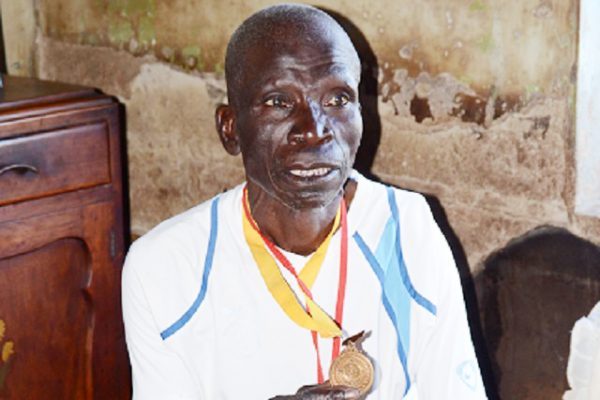
The word “great” is an adjective that is literally thrown around when Zimbabwean football is being discussed, but in reality, there have been few great players or legends in the local game.
By MICHAEL KARIAT
Forget the circus of the Zimbabwean team of former players which was regarded as the Zimbabwe Legends when they played the Barcelona Legends. The truth is that there were only one or two true legends in that Zimbabwean team.
Even John Phiri, widely regarded as Zimbabwe’s most capped footballer, was missing from that squad. That is the tragedy of Zimbabwean football where real heroes are not given the recognition they deserve, unless they are close to the authorities.
In fact, the truth is that Zimbabwean football has developed a habit of heaping praise on football greats after they die instead of helping them when they are still alive, and the late Shadreck Ngwenya who passed away on January 5, is the latest of the former football greats to fall victim to the system.
The former Dynamos captain died in abject poverty with not even one person from DeMbare or the Zimbabwe Football Association (Zifa) looking at him despite repeated appeals for assistance.
Yet this was the man who captained Dynamos during the time the club had such truly gifted players like the legendary George Shaya, Shaw Handriade, Shepherd Murape, Kuda Muchemenyi, Isaac Nhema, Simon Sachiti, Matthew Mwale, Daniel Ncube, David George and Oliver Kateya.
To be honest, none of the current Dynamos players, or those who won four consecutive league titles with DeMbare under Kalisto Pasuwa, would have equalled Ngwenya’s classy side of 1976 that beat Orlando Pirates 7-6 after two matches.
- Chamisa under fire over US$120K donation
- Mavhunga puts DeMbare into Chibuku quarterfinals
- Pension funds bet on Cabora Bassa oilfields
- Councils defy govt fire tender directive
Keep Reading
That is not all. To have a team like Moroka Swallows — at that time one of the top teams in South Africa — offer a Zimbabwean the job of player and later coach like they did to Hoshikoshi, as Ngwenya was also known, is another milestone itself.
That is not the end of it. During his playing days, and in the Dynamos blue and white stripes, Ngwenya won virtually everything Zimbabwean football had to offer and extended that to the Southern African Club Championship, which DeMbare won by overcoming Orlando Pirates that paraded South African legend, Jomo Sono.
There is more. Ngwenya was part of the Rhodesia team that played and lost to Australia in the World Cup qualifiers for the 1970 World Cup at a time when a jersey in the national team was not as easy to command as it is now.
As a coach, Ngwenya discovered and gave the chance to players like Reason Dahwa and Gilbert Kapuka who played for Black Mambas, Wellington Shangiwa and Innocent Hurudza, who went on to play for Chapungu, Tineyi Chamunorwa, who featured for Dynamos, Arnold Jani and Silver Bhebhe, who played for Eiffel Flats, the late Ranganai Nyashanu and Kaitano Tembo, who is now the Super sport United assistant coach.
It should be placed on record that Tembo was nicknamed Ngwenya not because of his hard tackling type of play, but because he resembled Ngwenya in his looks.
Hoshikoshi also coached the Kadoma Under-16 team that won the 1985 Natbrew Cup of which Michael Mahachi, the tournament director of the Zimbabwe Open Golf tournament, was part of the team.
“Shadreck was a great coach, a great motivator and a strict disciplinarian. It is unfortunate that Zimbabwean football did not take advantage and use his vast knowledge of the game when he was still alive,” said Mahachi, who is now a familiar figure more on the golf course than on the football field.
Sadly, though, Ngwenya died a bitter man after being neglected by the same football family that he gave his all to, including starring for the Warriors and for Dynamos, widely considered Zimbabwe’s most popular football team.
It does not make any sense anymore for Dynamos or for Zifa to stand up and say “we had such and such plans for Ngwenya” when they did not transform those plans into reality when the man was still around.
The story of Ngwenya is the same as that of Friday Phiri. After being neglected by his club CAPS United, a senior Makepekepe official was seen in front of the gathering at Phiri’s funeral claiming they had earmarked Amayenge for a place in the team’s technical department.
If that appointment did not come when Phiri was still alive, why then talk about it after he dies?
Zimbabwean football should learn to give due recognition to its greats when they are still around, not when they are in their graves.
l For your views, comments and suggestions email [email protected] or WhatsApp on 077 4 635 723.











